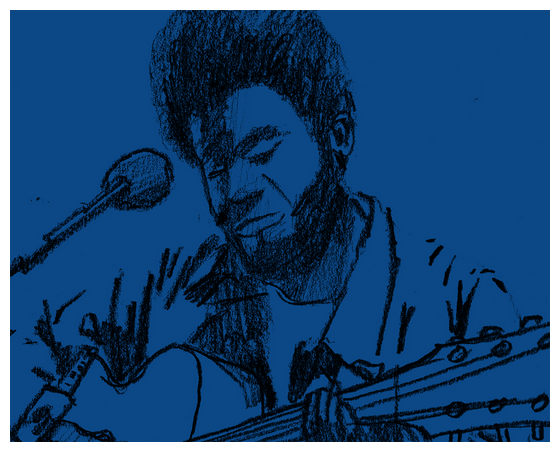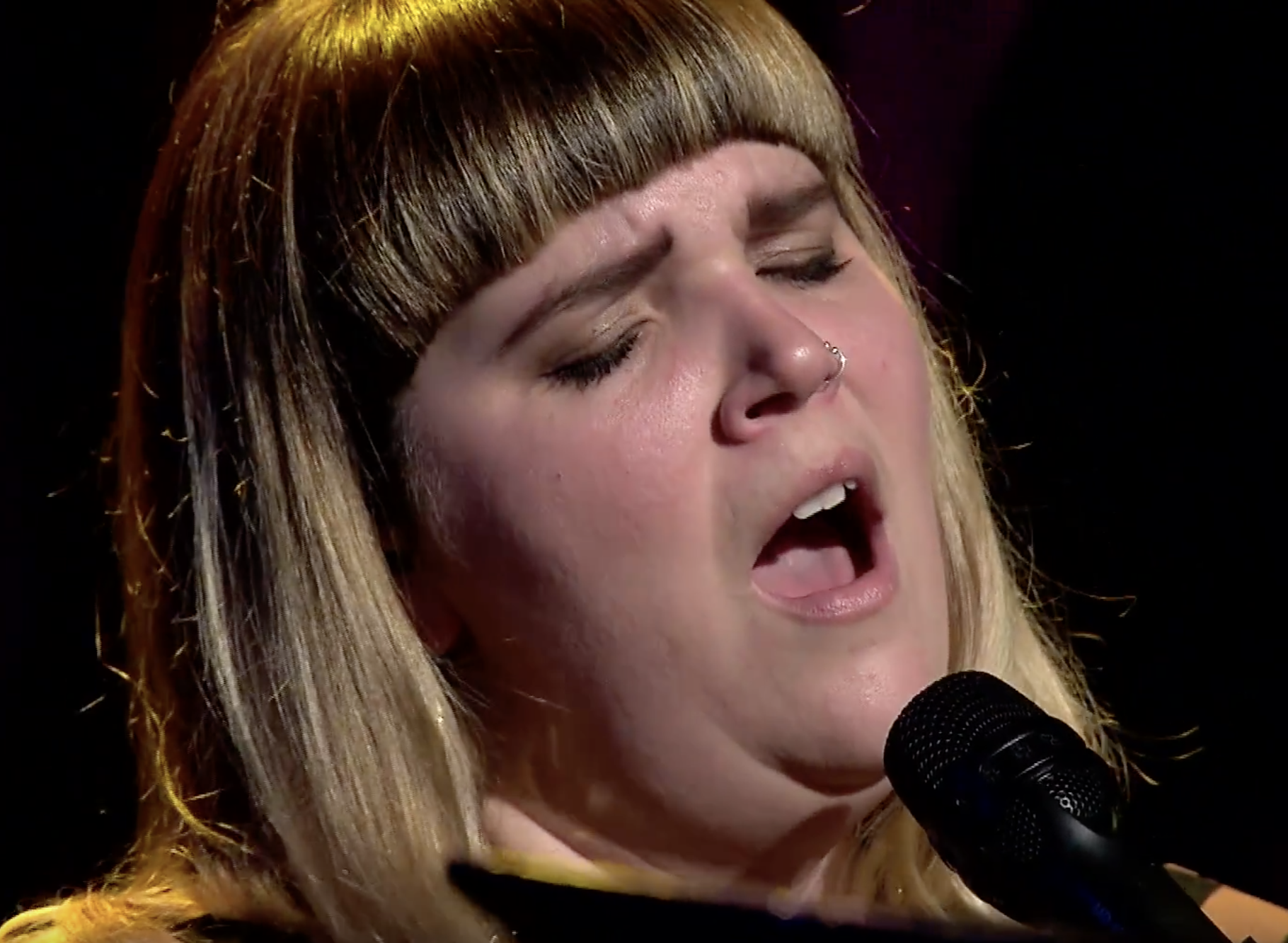NEW RELEASE
Marchita by Silvana Estrada

- ONE TRACK: Carta
- Marchita on YouTube and Spotify
- LIVE: NPR Tiny Desk Concert (20.23 mins)
- REVIEW: Allmusic.com

THE MAGIC AND THE MUSIC OF SILVANA ESTRADA
A transcendent voice framed by imaginative arrangements
Sometimes the singer’s voice simply transcends the words it sings. The meaning and emotion live in the sound. That’s what it’s like hearing Mexico’s Silvana Estrada, a young and preternaturally talented artist. This year she won accolades from listeners and fellow musicians as well as earning the Latin Grammy for Best New Artist thanks to her debut solo album, Marchita.
Estrada’s intimate and compelling voice is steeped in feeling on Marchita. The title translates as “withering”, reflecting the album’s theme – the pain of lost love.
It was her university jazz studies that taught her to use voice as an instrument. “For me, it’s so important to feel like…the music is the language and then the language is just something…. like, gravitating just around the music,” she told Atwood Magazine.
The album’s 11 original songs are sung in Spanish. I barely know a word so my impressions lean on her aching and intense vocals framed by imaginative arrangements. The intricate and often subdued instrumentation reflects her musical education and experience – from jazz to indie pop and classical to Mexico’s traditional folk genre, ranchero, which colours this collection.
At the heart of Marchita’s sound is her voice and the four-stringed Venezuelan cuatro, a gift from her father. Estrada’s musical expertise was born from parents who were luthiers and musicians in Coatepec in the Mexican state Veracruz. The household was brimming with music and busy with artists commissioning string instruments. Estrada learned piano, violin and viola. Hearing a Billie Holiday collection when she was 13 was seminal.
“I began to look for voices that would do things that impressed me a lot,” she told the New York Times in January. “That would spark the desire to do that with my voice, too,” and she found jazz singers like Sarah Vaughan, Ella Fitzgerald and Betty Carter. At the same time she was listening to Mexican icon Chavala Vargas and Argentina’s legendary Mercedes Sosa.
“When you grow up listening to Chavela Vargas, you realize that sorrow is a vehicle to understand the world,” Estrada said. “You realize that every feeling is part of a full life. The emotional legacy of these women brings us closer to these feelings.”
Leaving home and studying jazz
Estrada moved to Xalapa to finish high school and then studied jazz at the Universidad Veracruzana. At a student seminar she met US guitar virtuoso Charlie Hunter who – after hearing her songs – suggested they record an album together. Hunter has worked with artists like Norah Jones, John Mayer, Frank Ocean and D’Angelo.
The album Lo Sagrado was recorded in Estrada’s parents’ guest cabin and and released in 2017 (and rereleased in 2020). It prompted international Mexican star Natalia LaFourcade to invite Estrada – just 20 years old at the time – to record and perform with her. It also led to work and concerts with Uruguay’s Jorge Drexler and Smithers, BC-based Grammy Award winner Alex Cuba.
Shortly after recording the disc, Estrada took a trip to New York City delving into its jazz scene and playing with cutting edge players like Michael League from Snarky Puppy.
She told American Songwriter: “My first contact with freedom was with playing jazz. When I went to my first jam, I felt a sense of freedom that I couldn’t stop. I wanted this feeling for the rest of my life. Now, I have this tool to find my voice. Everything is easier through the soul and passion of jazz. A mix of these two worlds is who I am.”

Looking back, looking forward
Marchita was recorded almost three years ago. The lost love at the center of the album is history. In an interview with the New York Times she assessed the sentiments in her highly praised lyrics: “Only someone with that kind of innocence could write such solemn things,” she said. “It’s like a mourning of that first idea one has about love.”
Evenso, popular veteran Mexican singer Julieta Venegas has high praise for Estrada’s words. “What she writes is closer to a poetic construction, in the sense that it’s something that can stand on its own,” Venegas told the Times. “It’s not like it’s only accompanying the music.”
“She has a very intense relationship with words, which I think is so brilliant for such a young songwriter,” Venegas said. “Her songs have elements with a lot of depth — a story of images.”
It’s an interesting comment given Estrada’s earlier observation that “the language is just something…. like, gravitating just around the music.”
What’s clear is that this is an evolving, thinking, feeling artist with emotional and intellectual depth. And a lot of talent.
“It’s not easy to find your own truth,” says Estrada. “But it’s honesty, in your own search of truth that connects you with others. What connects beyond language and cultures, is that moment you put yourself in a vulnerable position. When you honour that vulnerability and turn it into a sacred moment and space and you let other people enter that sacred space, that’s a miracle. For me, that’s magic and that’s music.”
Listen in!

03 December 2022
REVIEW

ALLMUSIC.COM MAGAZINE
Marchita’s songs are solid, provocative, and deeply moving
by Thom Jurek / allmusic.com
Marchita is the second album and Glassnote debut from Mexican singer, songwriter, and multi-instrumentalist Silvana Estrada. Her first, Lo Sagrado, was recorded with guitarist Charlie Hunter and released in 2017 — it captured the imagination of indie music lovers on both sides of the border and won her a guest spot performing at a stadium in Mexico City alongside Natalia Lafourcade and Mon Laferte, and touring spots with Jorge Drexler and Rodrigo y Gabriela.
Marchita was recorded in Mexico City over five days in 2019 with producer and musical director Gustavo Guerrero and a small ensemble that includes strings, brass, and reeds as well as guitars, keyboard, and percussion instruments. Estrada sings and plays cuatro throughout. Unlike the indie pop sensibility so pervasive on Lo Sagrado, Marchita is steeped in tradition but far from traditional. This album makes use of her entire musical background, including indie pop, classical, jazz, and Latin American folk traditions. It is rendered simply and directly, deeply influenced by the poetic tradition of women composers including Chavela Vargas, Violeta Parra, and Soledad Bravo.
Opener “Más o Menos Antes” is about the loss of love delivered in slow waltz time. Accompanying herself on quatro she meets the abyss of loneliness head on and lets it wash over her.
The single “Te Guardo” celebrates the overwhelming euphoria of new love. Estrada surrounds herself with her quatro, Roberto Verástegui‘s piano, and an intimate string quartet. She emerges from the instrumentation to see herself reflected in the eyes of her beloved.
“Un Día Cualquie” offers a soaring promise of possibility above a Farfisa organ and percussion choir.
“Sabré Olvidar” is a spacy, intimate ranchera with vibraphone, upright bass, and a string quartet. Halfway through, the strings swell while framing a glockenspiel as Estrada’s voice cracks with emotion. The title track offers payback to a lover who scorned her. Rage flows freely though Estrada’s lyrics, though her voice remains sweet with sadness as cuatro and string quartet buoy her protagonist toward healing.
On “Tristeza,” Estrada confronts the frozen emotional state in the prolonged aftermath of a lost relationship. With organ, vibes, saxophone, and choral support, the grain in her voice moves through grief and confusion but finds the resolve necessary to transcend the stasis.
The vanguard sounds on “Casa” recall some of Björk‘s more experimental moments as Estrada sums up her experiences with searing honesty.
Closer “La Enfermedad del Siglo” is an instrumental performed by Alfredo Pino on flugelhorn and Verástegui on organ. Freely referencing jazz and ambient music, its textures cast a spell that seemingly underscores her preceding lyric view that love is a pervasive disease that plagues and blesses all who encounter it.
Marchita’s songs are solid, provocative, and deeply moving. Through them all, Estrada’s open, aching, vulnerable voice remains fierce and fearless. She carries her heartbreak and healing with honesty and courage and exhorts us to do the same.





